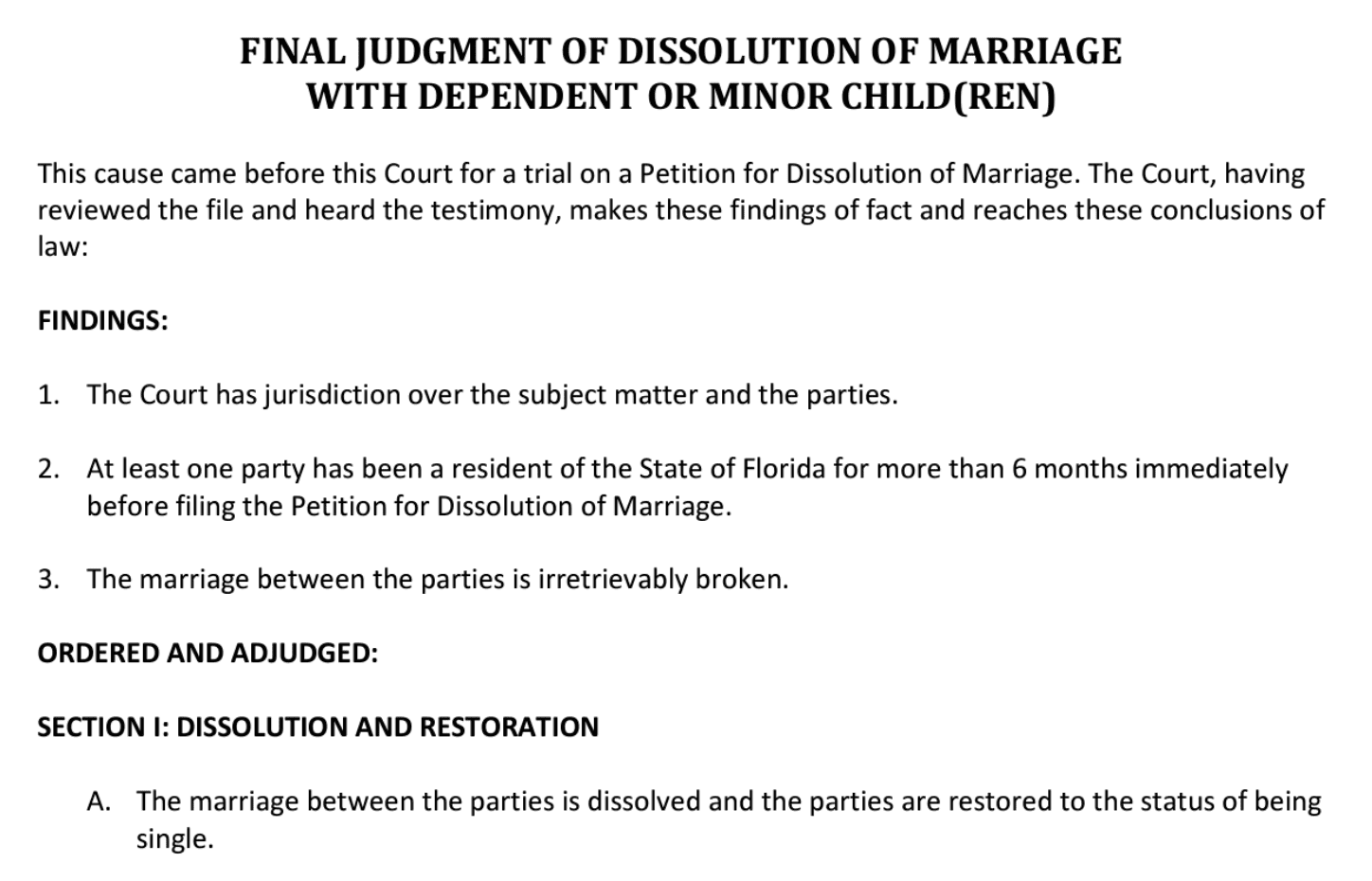Parental Responsibility Court Orders in Florida
When a court rules on what someone must or must not do, it puts the details in a court order.
Parenting plans, time-sharing schedules and child support arrangements become court orders once approved or issued by a judge.
Types of orders
Your family law case may involve several types of orders.
Temporary orders
Temporary orders provide short-term solutions to disputes that can't wait until the end of legal proceedings.
Examples include:
- Temporary orders for child support, parental responsibility and time-sharing
- Temporary permission to relocate more than 50 miles away
- A temporary injunction preventing a parent from leaving the state with the children or getting passports for them
- Temporary protection against domestic violence
Parents or a guardian ad litem can request these orders, and a judge decides whether to issue them, usually following a hearing.
The judge specifies a date when the order will expire, but the order can be replaced by a final judgment or extended to a later date before then.
Final judgments
The judge's ultimate decision in your case, at the end of a settlement or trial, is called the final judgment.
It addresses all the issues laid out in your initial filing and includes your parenting plan, time-sharing arrangement and child support requirements.
A final judgment replaces any temporary orders in the case.

Other orders
The court issues an order requiring mediation in all cases that aren't ready to settle and don't involve domestic violence.
In complicated or heated cases, the judge may also order a social investigation.
Other things the judge may order include paternity testing, a child's testimony in court (which is extremely rare) and a guardian ad litem.
Requesting orders
Most of the time, a judge will only issue an order after a parent or guardian ad litem has requested it by filing the appropriate form and providing evidence, often in a hearing.
Petitions ask the court to do something major, like open a case to decide parental responsibility.
Motions make requests during a case for things like temporary time-sharing, deviations from child support guidelines, and more.
Modifying orders
Parenting plans should always lay out a process for how parents will work toward an agreement on potential changes to parental responsibility or time-sharing. For example, the parents might use a mediator or appoint a mutual friend as tie-breaker. Parents can submit their agreements to court for approval.
If parents can't agree, the court will modify a final judgment only if circumstances have changed substantially or if the family meets requirements for modification laid out in their parenting plan. Either parent can file a supplemental petition to request modification.
After a hearing, the judge will respond to the modification request with a supplemental final judgment.
Enforcing orders
If the other parent doesn't follow a final judgment, you should keep detailed notes in a parenting journal. You can use the evidence if you ask the court to hold your co-parent in contempt of court, which can result in fines against them or even jail time. The judge will evaluate evidence during a hearing.
Child support orders can also be enforced by the Department of Revenue Child Support Program.
Following court orders correctly
When a court issues orders, you must follow them. If you don't, you can be brought back to court, fined and more.
But orders are complicated, especially for time-sharing. When exactly does "Week 2" begin this month? Which day marks the middle of summer break?
Use the Custody X Change online app to plug your order into a calendar you can edit, share and print so you'll never have to wonder whether you're following the order correctly.
 You can customize this with Custody X Change.
You can customize this with Custody X Change.
With Custody X Change, you can combine schedules for the school year, summer break and holidays into one calendar.
You can even track how well court orders are being followed with our parenting time tracker and parenting journal.
Custody X Change has all the tools you need to set your new parenting arrangement up for success.
